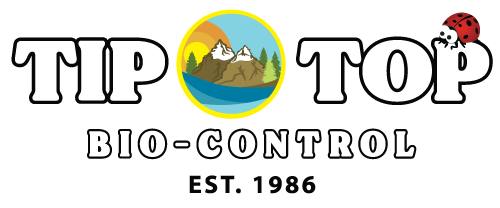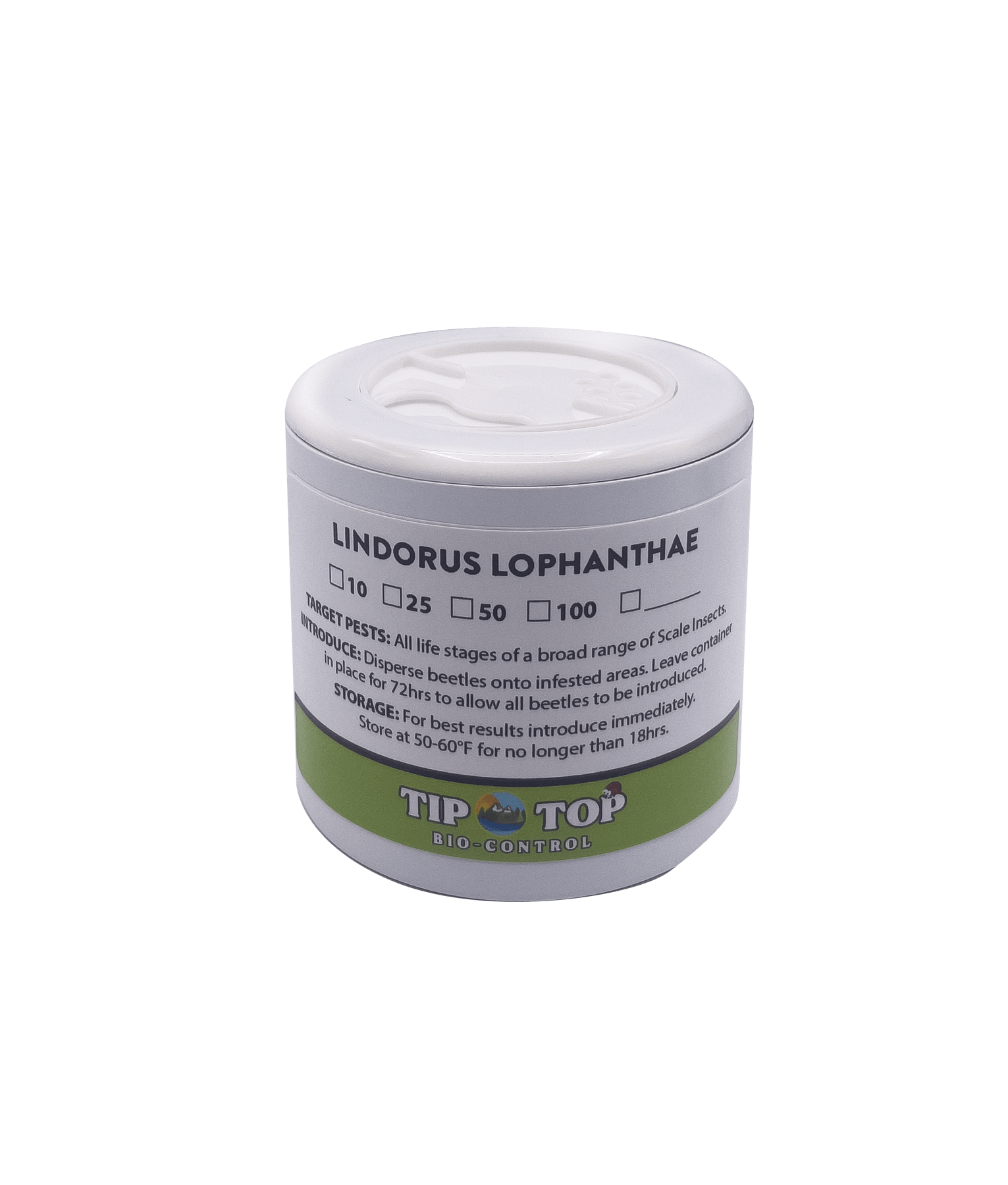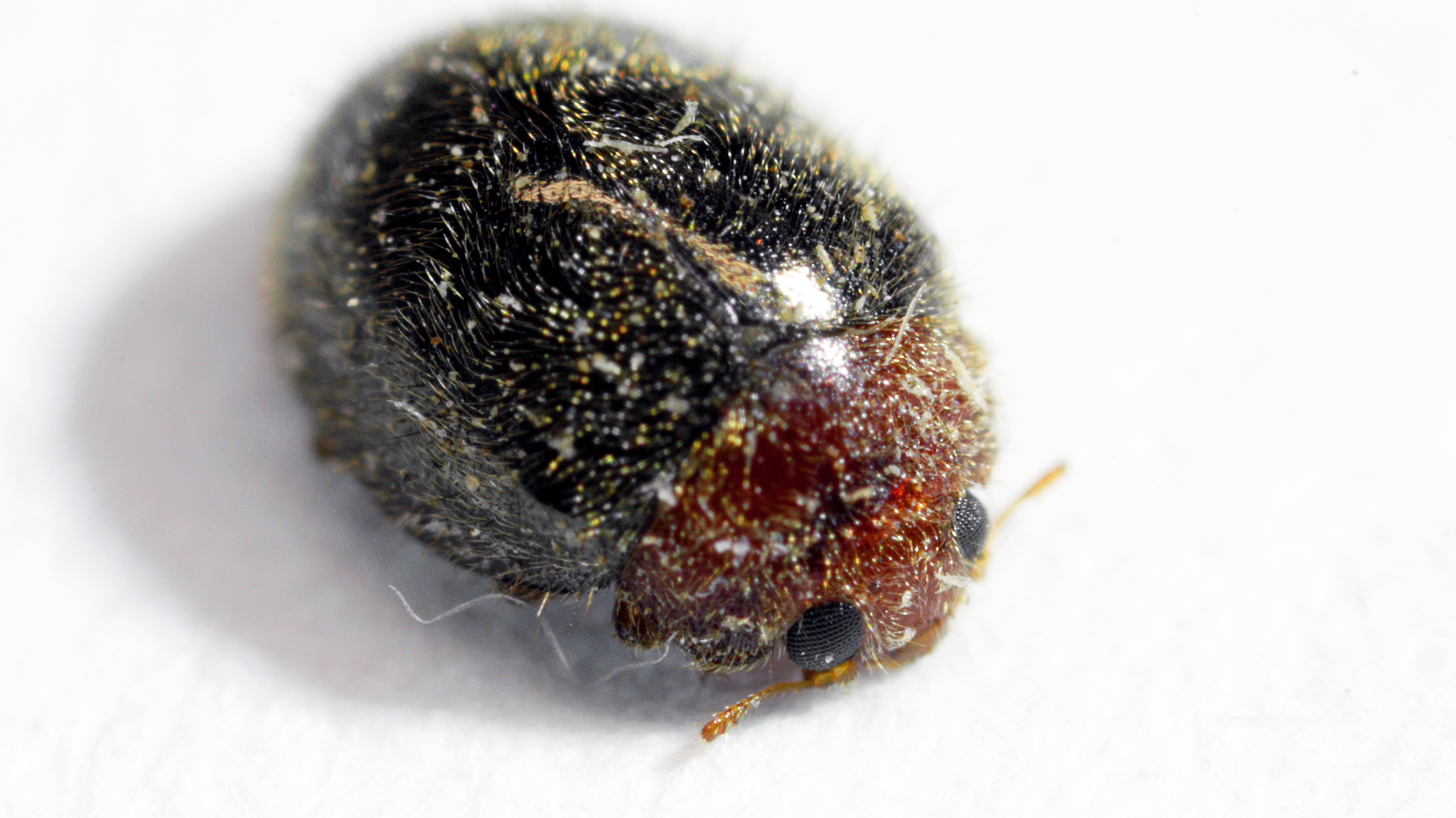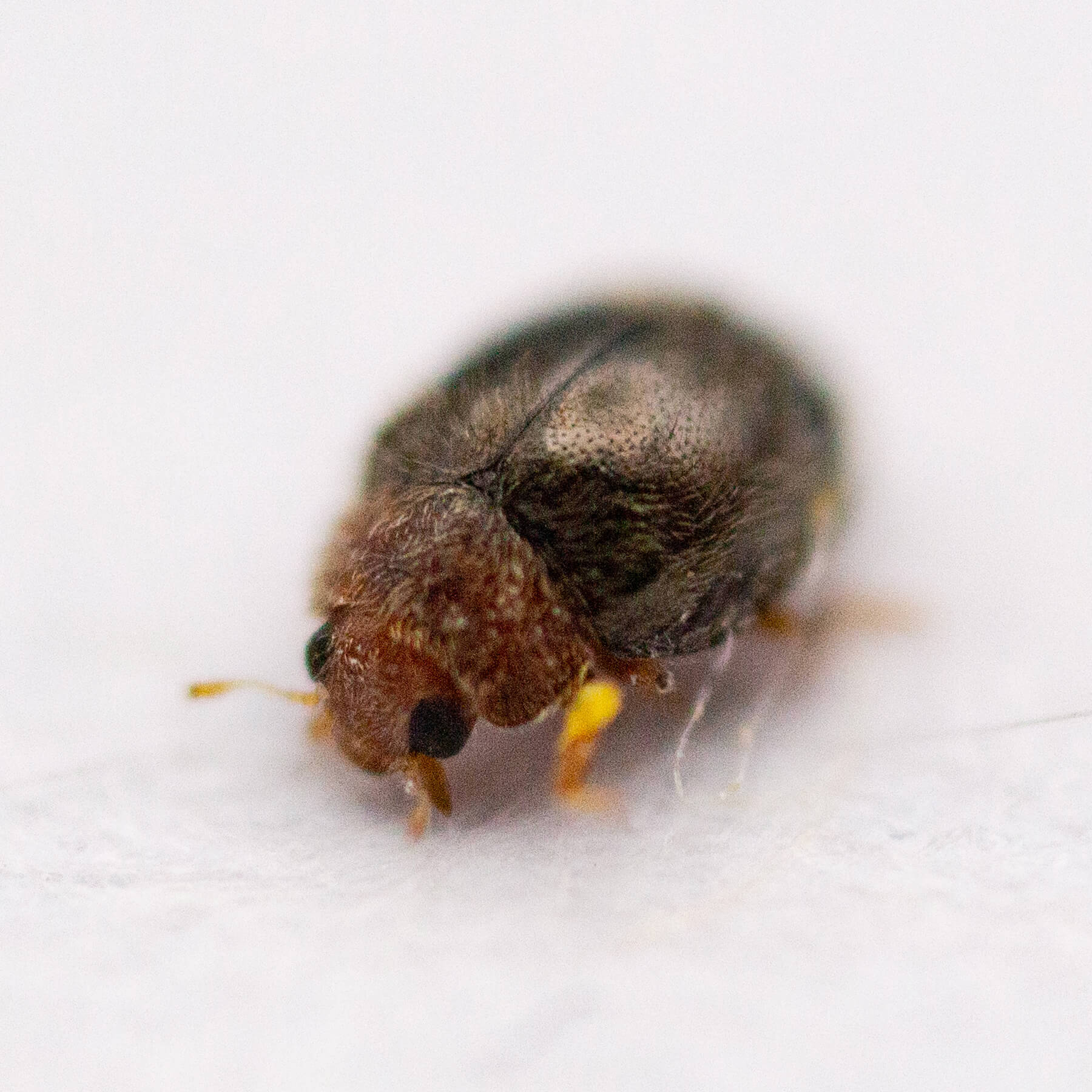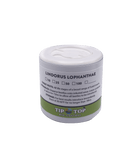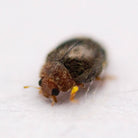Lindorus lophanthae - Scale Control
Case Count
LIVE DELIVERY GUARANTEE
Controls all life stages of scale.
TARGET PESTS
California Red Scale, San Jose Scale, Florida Red Scale, Oleander Scale, Hemispherical Scale, Brown Soft Scale, Citrus Snow Scale, Cottony Cushion Scale, Euonymus Scale, Magnolia Scale, & more.
DESCRIPTION
Scientific Name: Lindorus lophanthae
LINDORUS are a species of lady beetle (ladybug) with the classic round dome shaped body, and prized as a natural predator of scale insects. Measuring about 2-3mm, they typically have dark brown to black wing covers adorned with short gray hairs, and contrasting reddish brown to orange-ish coloring on the head, legs, and thorax. As a specialist for preying on scale insects, LINDORUS uses their mouth-parts to feed on all life stages of the pest, including the eggs, nymphs, and adults. Females attach small oval-shaped eggs to plant surfaces near colonies of scale. Depending on environmental conditions, it can take the eggs anywhere from a few days to a couple of weeks to hatch. Once the eggs hatch, the larvae emerge actively feeding on scale eggs and nymphs for about 2-3 weeks while they develop and grow. After completing larval development, they enter the pupal stage for about 1-2 weeks until they transform into adult beetles. As adults, they feed on all life stages of armored and soft scale species while continuing to mate and reproduce throughout an approximate 2-month lifespan.
TEMPERATURE
50-104°F
INTRODUCTION RATES
3-5 beetles per plant
50 beetles per tree
1,000-2,000 beetles per acre
It's important to note that these release rates serve as general guidelines and may vary based on the specific pest species, the crop or plant being treated, and level of infestation. Proper monitoring of the infestation and the subsequent effectiveness of the released beneficial insect population is crucial for determining the success of the biological control strategy.
STORAGE
For best results introduce immediately. Store at 50-60°F for no longer than 18hrs.
PRO TIPS:
Proper identification of the pest species is important. Monitoring the crop closely and introducing beneficial insects early will help in control pest populations.
Pesticides, even wetting agents, and spreader-stickers may adversely affect beneficial insects' survival. Broad spectrum and systemic insecticides are toxic.
WHOLESALE
Not available in cases. Overnight shipping is required.
ITEM NUMBERS
LINDORUS-10: 10 beetles per bottle.
LINDORUS-25: 25 beetles per bottle.
LINDORUS-50: 50 beetles per bottle.
LINDORUS-100: 100 beetles per bottle.
